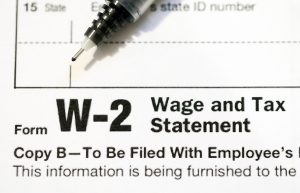In a recent unpublished decision, the New Jersey Superior Court, Appellate Division, addressed a Conscientious Employee Protection Act (CEPA) claim involving allegations of a retaliatory failure to promote within a police department. The case revolved around whether an employee of the Haddonfield Police Department, Michael Caruso, was denied a promotion to lieutenant due to his whistleblowing activities.
The Facts of the Case
 In Caruso v. Borough of Haddonfield, the plaintiff, a police officer, alleged he was unlawfully denied a promotion to lieutenant in retaliation for his whistleblowing activities, in violation CEPA. Caruso contended that he reported unlawful conduct within the department. Specifically, he claimed to have raised concerns about violations of departmental policies, misuse of authority, and actions he perceived as undermining public trust in law enforcement. According to his claims, these protected activities caused his employer to retaliate by refusing to promote him despite his qualifications and eligibility.
In Caruso v. Borough of Haddonfield, the plaintiff, a police officer, alleged he was unlawfully denied a promotion to lieutenant in retaliation for his whistleblowing activities, in violation CEPA. Caruso contended that he reported unlawful conduct within the department. Specifically, he claimed to have raised concerns about violations of departmental policies, misuse of authority, and actions he perceived as undermining public trust in law enforcement. According to his claims, these protected activities caused his employer to retaliate by refusing to promote him despite his qualifications and eligibility.
The trial court granted summary judgment in favor of the Borough, finding that Mr. Caruso failed to establish two critical elements of a CEPA claim:
- Protected Whistleblowing Activity: The court determined there was insufficient evidence to demonstrate the employee engaged in whistleblowing activities as defined by CEPA.
- Causal Connection: The court concluded there was no evidence linking the alleged whistleblowing to the decision to deny the promotion.
The employee then appealed the case to the Appellate Division.
 New Jersey Employment Lawyer Blog
New Jersey Employment Lawyer Blog










